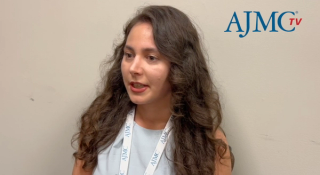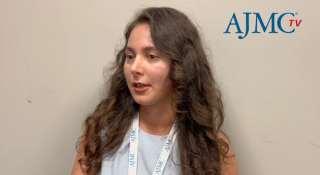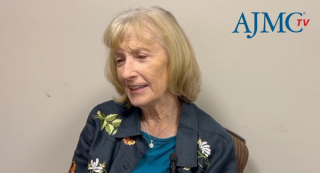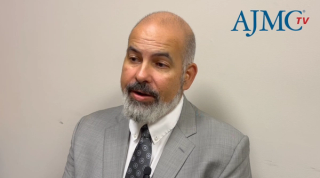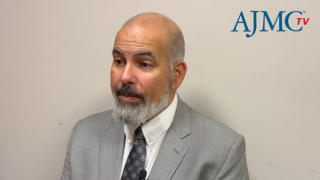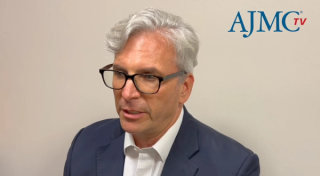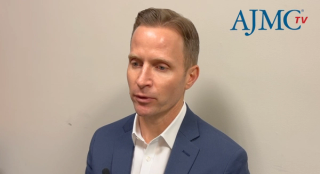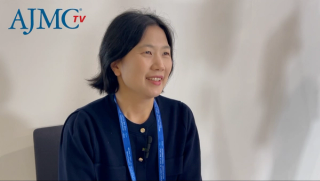
Oncology
Latest News

Latest Videos

Podcasts
More News

Jonathan Thompson, MD, MS, explains that adjuvant immunotherapy benefits patients with early-stage lung cancer with incomplete neoadjuvant response, while treatment decisions in the adjuvant setting must weigh efficacy, toxicity, and limited evidence.

Jonathan Thompson, MD, MS, highlighted that reducing delays in molecular testing and treatment initiation is critical for improving lung cancer outcomes, and that clinical trial data suggest immunotherapy duration can often be safely de-escalated in patients who achieve a complete pathologic response.
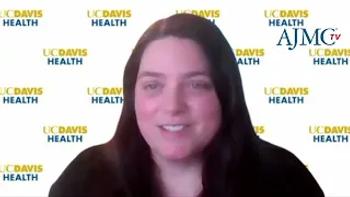
Health systems must prepare for the growing impact of cell and gene therapies by addressing their high costs, complex care pathways, and payer collaboration needs to ensure timely and sustainable patient access.
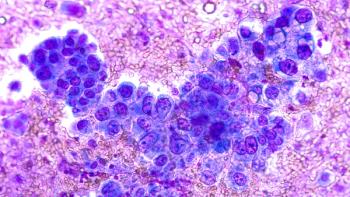
Jonathan Thompson, MD, MS, emphasized that broader molecular testing in early-stage non–small cell lung cancer (NSCLC) is essential to guide perioperative treatment decisions, while selective retesting at progression can identify resistance mutations or new targets to optimize value-based care.
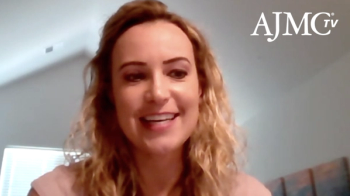
Emilie Aschenbrenner, PharmD, BCOP, outlines how Froedtert Health and the Medical College of Wisconsin use outpatient-based care models, standardized protocols, and collaborative partnerships to improve cost-effectiveness, accessibility, and patient experience.

Jonathan Thompson, MD, MS, emphasized that comprehensive biomarker testing with next-generation sequencing and PD-L1 analysis—implemented as reflex testing at biopsy—is essential to guide precision therapy in lung cancer and to address persistent disparities in timely, equitable access to care.

Clayton Irvine, PharmD, MBA, MS, discusses how pharmacists are essential to advancing payer–provider collaboration in value-based care by shaping formularies, standardizing drug reviews, leveraging real-world evidence, and leading pilot programs to optimize patient outcomes and cost-effectiveness.

Clayton Irvine, PharmD, MBA, MS, emphasized that optimizing value-based access to cell and gene therapies requires standardized care protocols, coordinated transitions between care settings, careful evaluation of prior authorization and financial assistance options, and formulary decisions that balance clinical outcomes with both direct and indirect costs to patients and institutions.

The newly developed model has an area under the curve of 0.807 for predicting progression-free survival.

Emilie Aschenbrenner, PharmD, BCOP, discusses how integrating CD38-targeted therapies into first-line treatment for transplant-ineligible multiple myeloma requires balancing clinical benefit, cost, and insurance coverage.
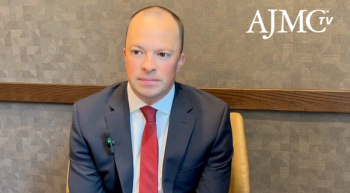
Jason Bergsbaken, PharmD, MBA, BCOP, explains the value of pharmacist involvement in precision molecular tumor boards and end-of-life care discussions, highlighting their role in ensuring evidence-based therapy selection, patient-specific recommendations, and shared decision-making that aligns treatment with individual goals.

Clayton Irvine, PharmD, MBA, MS, discusses strategies to address payer-driven biosimilar and prior authorization challenges through integrated digital solutions, while advocating for flexible, regularly reviewed treatment pathways supported by molecular tumor boards and artificial intelligence to balance standardization with personalized, biomarker-driven oncology care.

Clayton Irvine, PharmD, MBA, MS, explains that leveraging high-quality, real-world data; cross-institutional collaboration; standardized care pathways; advanced technologies; and integrated academic–community oncology partnerships can improve treatment decision-making, reduce financial toxicity, address drug shortages, and optimize infusion center efficiency.

Jason Bergsbaken, PharmD, MBA, BCOP, highlights the operational challenges of value-based oncology care while emphasizing the need to balance standardized treatment pathways with flexibility for personalized, biomarker-driven care.

Jason Bergsbaken, PharmD, MBA, BCOP, highlights the growing role of real-world data in validating or de-implementing therapies, the need for vigilant postapproval outcomes monitoring, and the value of academic–community oncology partnerships.

Dordaviprone (Modeyso) is now approved to treat recurrent H3 K27M-mutant diffuse midline glioma, an ultra-rare, aggressive brain tumor primarily affecting children.

Digital patient profiles and expansive real-world data are reshaping oncology clinical trials, explained Gen Li, PhD, MBA, president and founder of Phesi.

A significant number of patients with cancer, caregivers, and health care professionals face significant disparities in legal issues, with the most common needs revolving around health insurance, finances, employment, and disability insurance.

A retrospective analysis found whole brain radiation therapy alongside immune checkpoint inhibitors led to “brilliant” 2-year overall survival rates.

The newly FDA-approved linvoseltamab (Lynozyfic; Regeneron) may improve access to multiple myeloma treatment by offering an off-the-shelf, outpatient option that can be administered in community settings, according to Sundar Jagannath, MBBS.

Real-world data support the effectiveness of combining platinum-based chemotherapy with PD-1 inhibitors for recurrent limited-disease small cell lung cancer (SCLC), enhancing patient outcomes.

New data show midkine expression is heightened in small cell lung cancer, suggesting the growth factor may be an important therapeutic target.

The CRL was given because the FDA did not consider the phase 1/2 IGNYTE trial to be an adequate and well-controlled clinical investigation to provide substantial evidence to support approval

David Nguyen, MD, medical oncologist with Tufts Medicine and Lowell General Hospital, discusses the evolving landscape of advanced cancer treatments like chimeric antigen receptor T-cell therapy and bispecific antibodies

Flatiron Health expands its international oncology research network, enhancing real-world data use to improve patient outcomes and cancer care globally.





